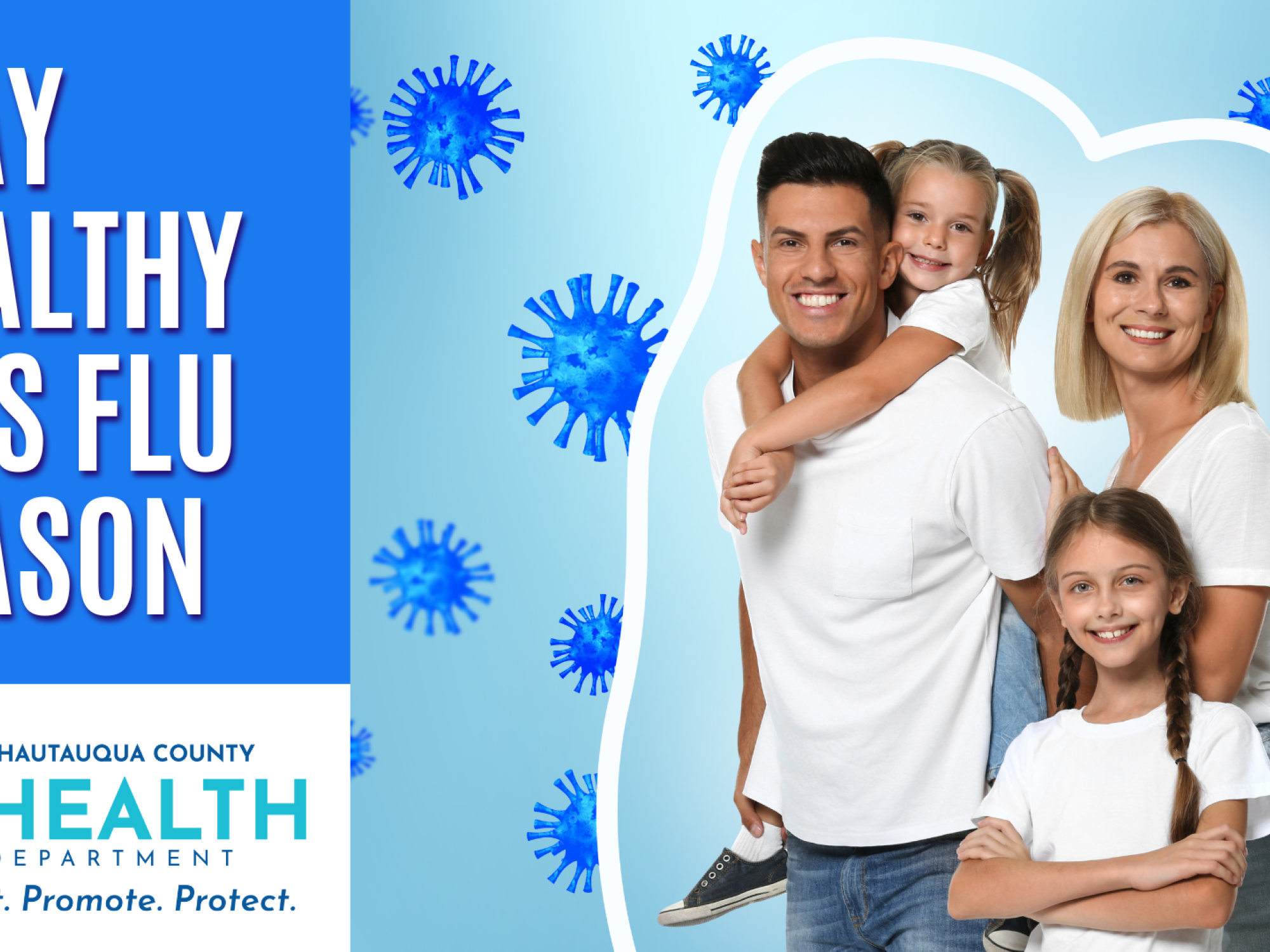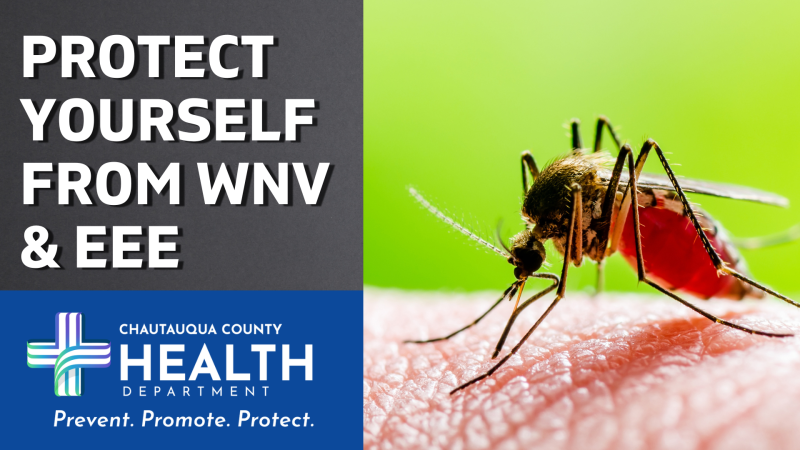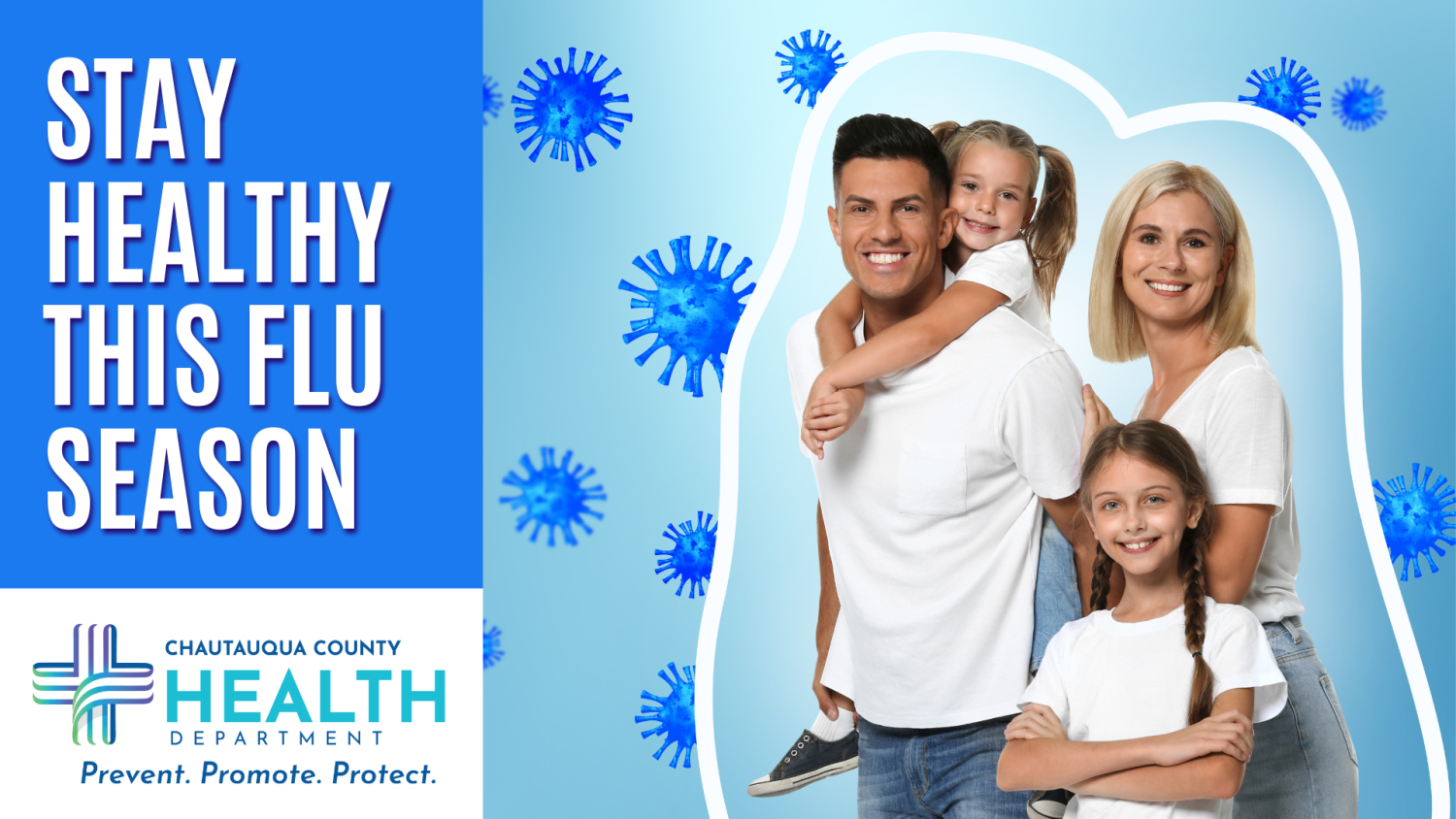
MAYVILLE, N.Y. — With respiratory illness season approaching, the Chautauqua County Health Department (CCHD) reminds residents to take proactive steps to protect themselves, their families, and the community from the spread of viruses such as influenza or flu, COVID-19, and RSV.
Why It Matters: Last year, the CDC estimated that over 1 million people in the U.S. were hospitalized, and more than 70,000 died from respiratory illnesses. Additionally, the New York State Department of Health (NYSDOH) reported a record 541,496 positive influenza cases and over 33,000 hospitalizations. Even healthy individuals can become seriously ill. Prevention is key.
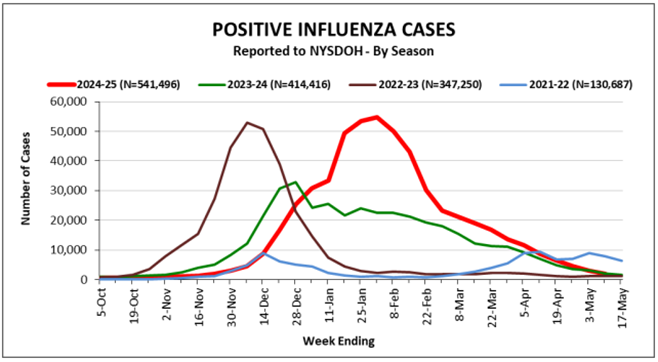
Source: New York State Department of Health 2024-2025 Flu Monitoring Archives
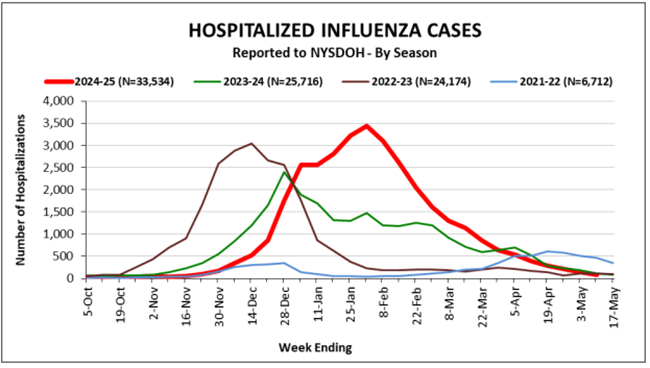
Source: New York State Department of Health 2024-2025 Flu Monitoring Archives
"As we enter the colder months, it’s more important than ever to take steps to protect ourselves and our loved ones from serious illness. Vaccines, good hygiene, and staying home when sick are simple but powerful tools to keep our community safe,” states Chautauqua County’s Public Health Director, Lacey Wilson. “We’ve seen the impact respiratory illnesses can have — especially on our most vulnerable — and prevention is our best defense. I encourage everyone to talk with their healthcare provider about how to stay healthy this season."
Stay Ahead of the Flu |
Influenza (commonly known as the flu) is a contagious respiratory illness that returns every year during the colder months. While many recover in a couple of weeks, the flu can lead to severe complications—especially for:
- Older adults
- Infants and young children
- Pregnant women
- People with chronic health conditions such as asthma, heart disease, or diabetes
- Residents of nursing homes
The most effective way to prevent the flu? Get vaccinated. Annual flu shots are recommended for everyone aged 6 months and older.
Understanding RSV |
Respiratory syncytial virus, or RSV, is a common respiratory virus that infects the nose, throat, and lungs. RSV symptoms make it difficult to distinguish it from the common cold or other respiratory viruses (like the flu or COVID-19). RSV spreads in the fall and winter along with other respiratory viruses. It usually peaks in December and January. Infants and older adults with certain risk factors are more likely to develop severe RSV and need hospitalization.
Vaccines may not prevent every infection, but they dramatically reduce the risk of severe illness and hospitalization.
Core Prevention Strategies |
CCHD supports the CDC’s guidance on the following everyday precautions to reduce the spread of respiratory viruses:
- Stay up-to-date on vaccinations – Talk to your healthcare provider about recommended vaccines for flu, COVID-19, and RSV.
- Practice good hygiene – Wash hands often and disinfect high-touch surfaces.
- Improve air quality – Let in fresh air, use air purifiers, or meet outdoors when possible.
- Stay home when sick – Use precautions to avoid spreading illness, and seek prompt care if you’re at high risk.
What to Do If You’ve Been Exposed |
If you’ve been around someone who is sick with a respiratory illness, here’s what you should do:
- Monitor for Symptoms. Common symptoms include fever or chills, fatigue, cough, runny or stuffy nose, loss of appetite, sore throat, headache or muscle aches.
- Take Extra Care If You're High-Risk. Certain groups should act quickly at the first sign of illness: Adults 65 and older, children under 2, those with weakened immune systems or chronic conditions, people with disabilities and pregnant or recently pregnant women.
- Know Emergency Warning Signs. Seek emergency care if you or your child experience difficulty breathing, bluish lips or face, chest pain, seizures or confusion, sudden changes in mental state
Final Message |
Take the time now to protect yourself and those around you. Stay informed, stay prepared, and don’t hesitate to talk to your healthcare provider about the best steps for your situation.
For more information on respiratory illness and prevention, visit the CDC’s website https://www.cdc.gov/respiratory-viruses/index.html. If you would like to receive a flu or other respiratory illness vaccine, talk to your doctor, or contact the Chautauqua County Health Department at 716-753-4491.
About Chautauqua County Health Department - The Chautauqua County Health Department is the leading Public Health organization in Chautauqua County dedicated to the support of the community’s health. The Health Department takes innovative approaches to provide technical assistance to partner organizations, and offers various programs and services in order to help prevent disease, protect the public’s health and promote our community’s overall health and wellness. For more information visit www.HealthyCHQ.com.

